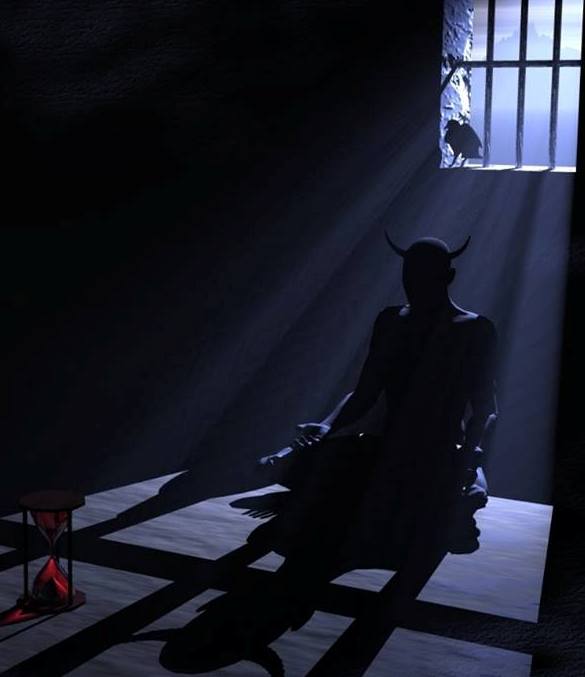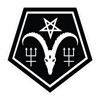Satanism and the Egocentric Predicament
by Thomas LeRoy, Founder of the Sect of the Horned God
“Everything is consciousness.”
Above is an example of one of those trippy-dippy-hippie bullshit New Age sayings that has been voiced by more than a few gluten-free, organic granola-eating types with a meaning lost to them, but since it was muttered by Deepak Chopra it must be deep. In truth, it has the depth of a drought-ridden California mud-puddle.
But what would happen if we rearranged those words? What if we wrote: “Consciousness is everything”? Does that have meaning?
The fact is, there is no truer statement. Consciousness is everything. All we know, all we see, feel, smell, etc. we do so with our minds. Our hands feel nothing, our eyes see nothing, our nose smells nothing, our ears hear nothing; it is all in the mind. And what is the mind? It’s that occupant of the brain. It is one with our consciousness.
But what is this thing called consciousness? Not an easy concept to define, but it has been described as the state of being awake and aware of what is happening around us, and of having a sense of “self”. We can never go so far as in creating a science of consciousness, for science is purely objective and consciousness is subjective. But it is said that consciousness can be quantified to a degree. It is believed that in the brain there are three different levels of consciousness. Level one is found in the back of the brain, also known as the reptilian, where we find the awareness of the space around us. Level two is found in the center. This is the mammalian brain, where awareness pertaining to relationships with others is found. Last, and located in the frontal lobe, is level three, the human, the part that allows us awareness of time, the future, tomorrow. But what about awareness of reality? Can we fully comprehend that? Maybe one day our brains will develop a fourth level of consciousness in a frontal-frontal lobe, but until that day the answer is no. We can not be sure if anything is real. It’s all perception. BUT, there is one thing we can be absolutely sure of — our own personal existence.
“Cogito ergo sum. I think, therefore I am.” The 17th century French philosopher René Descartes uttered those words with the idea that the mere act of thinking about one’s existence proves there is someone doing the thinking. We can know we exist, but we can never be sure as to the true extent, or location, of that existence. For all I know I am right now sitting in a rubber-padded room, straight-jacket on, in a puddle of my own piss imagining I founded a Satanic organization and that I live with a beautiful wife on a lovely winery in Northern California. Or I could be a head in a jar with electrodes hooked up to my brain feeding me a simulated reality like out of “The Matrix”. Or I’m simply pure consciousness trapped in a material reality created by the “Demiurge”. Who knows? The truth is we can not know for certain. But don’t get me wrong. If the objective reality is a simulation, or an illusion, one can’t help but notice that there are some pretty strict laws in this illusion that seem unbreakable. It wouldn’t be wise for one to jump off the roof of a skyscraper and attempt to manifest a staircase out of pure consciousness. Could end poorly.
So where does this lead us? Well, if we wholeheartedly and unabashedly want to seek the truth we have only one direction to go. Most look outward for answers; we go searching in an uncertain reality seeking 100% assurance when we should be looking inward!
Before the advent of psychology, one of the best tools to aid in our psychonautical studies was mythology. But most today ignore this tool, or attempt to make the gods and monsters of mythology “real” by using a little trick called faith. Some may get a true sense of fulfillment from faith, but they have missed the point. If myth is the song of the psyche that gives voice and substance to the archetypes of the collective unconscious, then faith is unnecessary. Once the journalist Bill Moyers said to mythologist Joseph Campbell, “You’re a man of faith.” Campbell’s response was, “No, I’m not. I don’t need faith when I have experience.” If you use the word “Satanists” in defining who you are, you too are delving into that experience of the mythological. You have found that psychological tool. You grasp it in your greedy little hand, for Satan is more than a word, but less than an absolute. Myth should be experienced, not believed. It is a way for us to better understand that which we know without a doubt is real — our consciousness.






